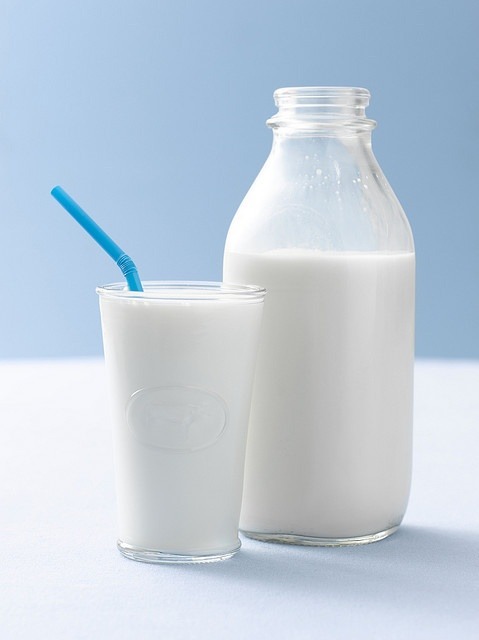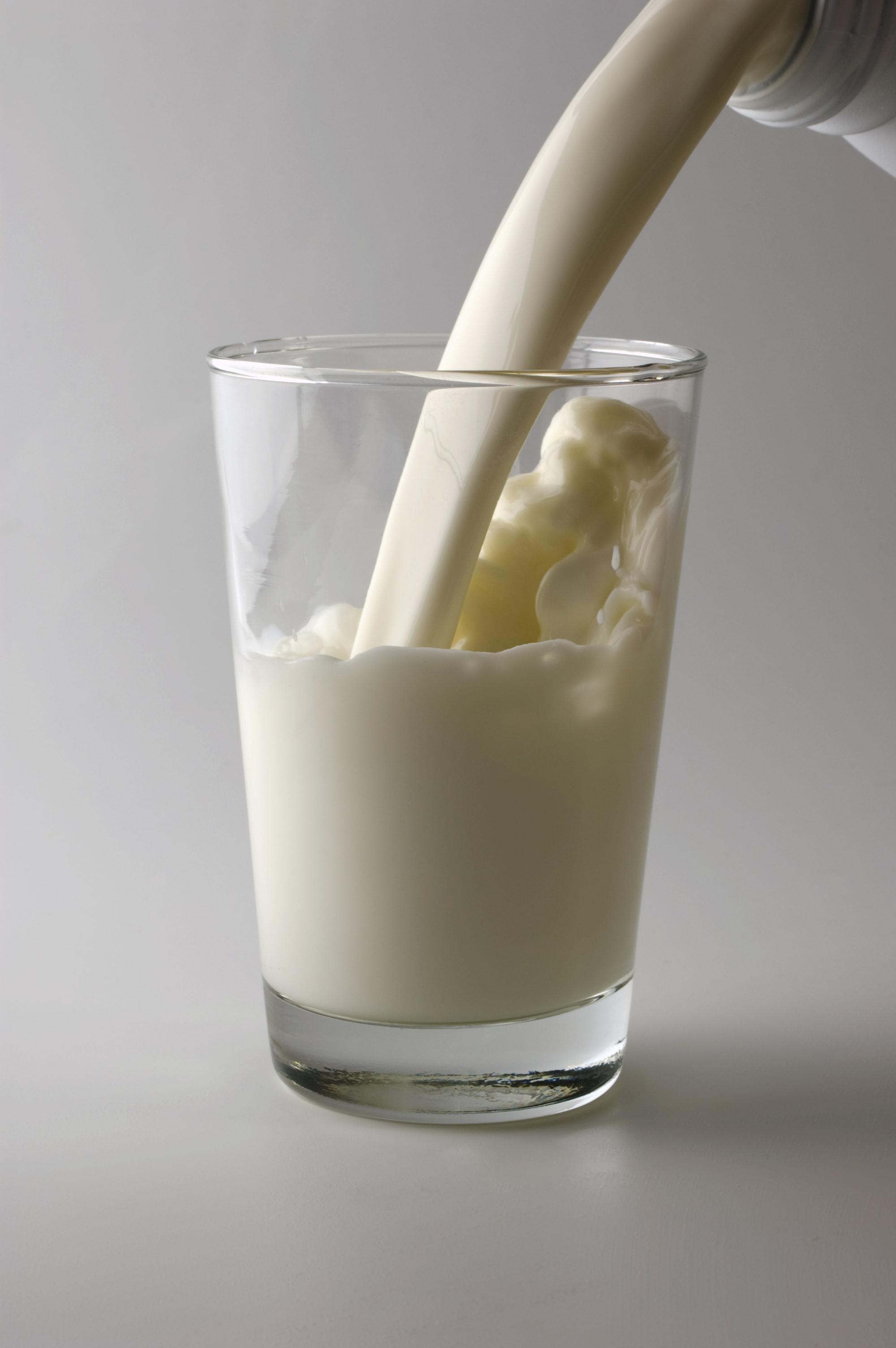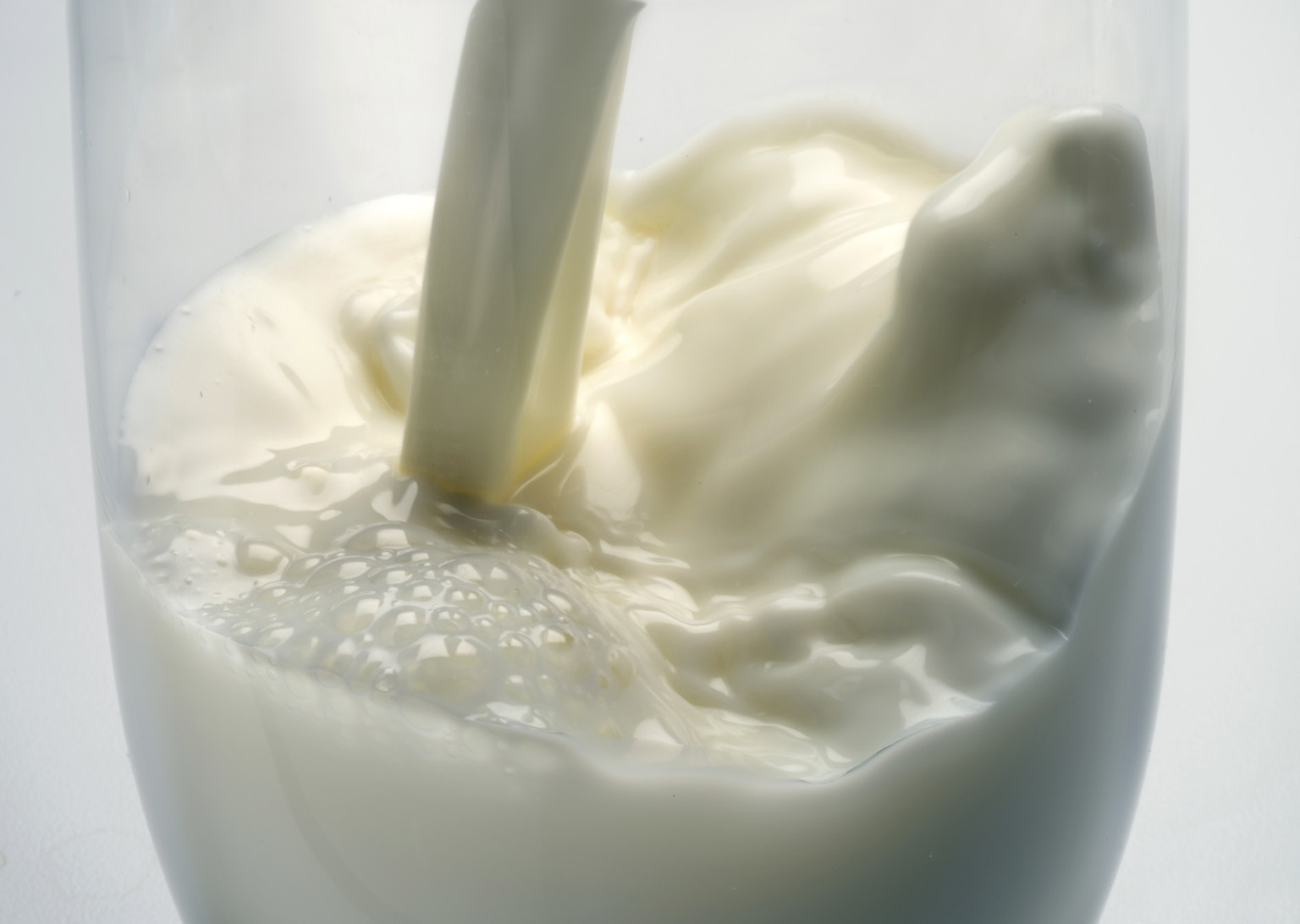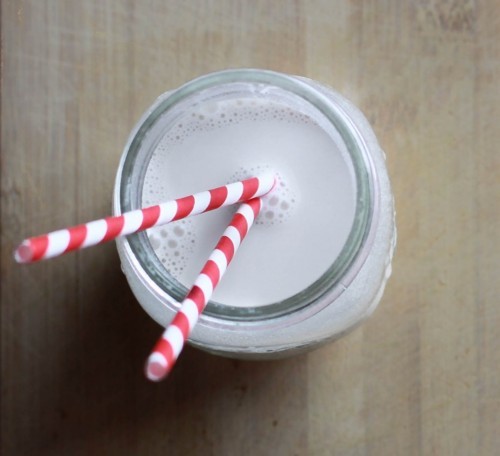One of the great staples of my childhood was the reassuring sound each morning of the milkman delivering fresh bottles of creamy milk to the door.
I used to like the blue-topped bottles – homogenised and full cream – while my sister preferred the gold-topped variety – unhomogenised, so she could scoop the cream off the top with a teaspoon. It seemed a fairly simple choice.
These days, look on the supermarket shelves – home delivery of milk having long since gone the way of many luxuries, including milk in glass bottles – and the range on offer is utterly bamboozling. There's skim milk, high-calcium milk, A2 milk, vitamin-enriched milk, soy milk, lactose-free milk, organic milk and much, much more.
I used to like the blue-topped bottles – homogenised and full cream – while my sister preferred the gold-topped variety – unhomogenised, so she could scoop the cream off the top with a teaspoon. It seemed a fairly simple choice.
These days, look on the supermarket shelves – home delivery of milk having long since gone the way of many luxuries, including milk in glass bottles – and the range on offer is utterly bamboozling. There's skim milk, high-calcium milk, A2 milk, vitamin-enriched milk, soy milk, lactose-free milk, organic milk and much, much more.
At the same time, supermarkets have radically altered the market by offering no-brand milk at the astonishing price of $1 a litre, making it cheaper than bottled water.
But for all this, has the quality of our milk improved?
Creating consistency
Ask dairy farmers and milk producers about the milk market today and they all agree things have changed.
But many say the changes have not resulted in a better product for consumers, let alone a better deal for farmers.
"Most milk has been standardised down these days, so the one thing people can say is that it tastes the same today, tomorrow and next week," says Queensland dairy farmer Richard Schroder, who produces one of the state's last remaining independent milk brands, Cooloola Milk. "It's hard to find milk now that is not adulterated to make it all taste the same."
NSW independent farmer John Fairley, who owns Country Valley milk, agrees and says nearly all milk sold today is actually a reconstituted product, often containing other dairy by-products.
Fairley says when big companies produce milk, they "pull it apart and put it back together again".
But many say the changes have not resulted in a better product for consumers, let alone a better deal for farmers.
"Most milk has been standardised down these days, so the one thing people can say is that it tastes the same today, tomorrow and next week," says Queensland dairy farmer Richard Schroder, who produces one of the state's last remaining independent milk brands, Cooloola Milk. "It's hard to find milk now that is not adulterated to make it all taste the same."
NSW independent farmer John Fairley, who owns Country Valley milk, agrees and says nearly all milk sold today is actually a reconstituted product, often containing other dairy by-products.
Fairley says when big companies produce milk, they "pull it apart and put it back together again".
Helen Dornom, Dairy Australia's sustainability manager, agrees the components of milk are adjusted. She says this is to give us the levels of protein, fat and calcium that we expect. "For example, in early spring the natural protein levels in the milk straight from cows are low. This means the fat and carbohydrate levels will be higher in proportion, so these components are adjusted accordingly," she says.
Milk standardisation has been occurring since the late 1970s.
What's in milk?
"Reconstituted" milk is perfectly legal, but Fairley says most of this standardised milk contains a by-product from the dairy production process called permeate, which occurs when the milk proteins and fat are removed. Permeate has been used in Australian milk for about two decades.
Body+soul nutritionist Lisa Guy says permeate is cheaper than milk to buy, so combining the two makes a cheaper product for milk companies.
"Adding permeate to milk doesn't seem to reduce the nutritional value of milk, though. Milks with added permeate and pure milks seem to have a very similar calcium, protein and fat content," Guy says.
Fairley says permeate can taint the taste of the milk and increase its lactose (milk sugar) quotient. "It's high in lactose and if you are even mildly lactose intolerant, it might put you over the edge," he says.
Body+soul nutritionist Lisa Guy says permeate is cheaper than milk to buy, so combining the two makes a cheaper product for milk companies.
"Adding permeate to milk doesn't seem to reduce the nutritional value of milk, though. Milks with added permeate and pure milks seem to have a very similar calcium, protein and fat content," Guy says.
Fairley says permeate can taint the taste of the milk and increase its lactose (milk sugar) quotient. "It's high in lactose and if you are even mildly lactose intolerant, it might put you over the edge," he says.
Lactose intolerance is caused by a lack of the enzyme involved in the breakdown of lactose in the body. Dornom argues there is no link between lactose intolerance and permeate. "Adding permeate to milk will not increase its lactose level because the fat, protein and carbohydrate or sugar levels are always the same to ensure a consistent product throughout the year."
For many who find dairy hard to digest, the problem is not lactose, but casein, one of the main proteins in milk, explains Peter Nathan, CEO of dairy company A2. "About a quarter of people have a perceived intolerance to dairy but only about five per cent of people are diagnosed as lactose intolerant," he says. A2 only uses milk from breeds of cows that produce milk with a form of casein that many people find more digestion-friendly. "Many people can drink A2 where they couldn't otherwise drink milk," Nathan says.
Choices, choices
All milks for sale, regardless of how they are processed or whether they have permeate added, have to comply with the Australia New Zealand Food Standards Code. These standards set minimum and maximum requirements for fat and minimum requirements for protein.
Queensland Dairy Organisation president Brian Tessman agrees cheap supermarket milk "meets basic standards of milk" but, he says, there is milk and then there is premium-quality milk.
Queensland Dairy Organisation president Brian Tessman agrees cheap supermarket milk "meets basic standards of milk" but, he says, there is milk and then there is premium-quality milk.
So what's a confused consumer to do?
Guy recommends the natural approach. "Ideally, choose milks that are as close to their natural state as possible."
Tessman encourages consumers to select the branded milk of small or large producers rather than unbranded supermarket milk because the return to the farmer is greater. He also believes the product is often superior.
Tessman encourages consumers to select the branded milk of small or large producers rather than unbranded supermarket milk because the return to the farmer is greater. He also believes the product is often superior.
"Each month [since the introduction of cheap milk] the average farmer is $700 to $800 out of pocket," he says.
For Fairley, interest in Country Valley milk has surged since the supermarket price war.
"When the $1 a litre milk came in, our sales the next month went up 25 per cent," he says. "Some people have made the decision to buy our milk to keep it local."
Schroder, too, hopes consumers will opt for the taste of local milk. "They might be paying a little bit more for it, but it's not adulterated," he says. "It actually tastes like milk."
Local milk
- NSW: Country Valley, Norco, Over the Moon, South Coast Dairy, Udder Farm.
- Victoria: Demeter Biodynamics, Jonesy's Dairy Fresh, La Latteria, Sungold.
- Queensland: Barambah Organics, Cooloola, Ivyhome, Maleny Dairies, Mungalli Creek Dairy, Misty Mountain Farms.
- SA: Alexandrina Cheese, BD Farm Paris Creek, Fleurieu Milk & Yoghurt Company, Tweedvale Milk.
- WA: Bannister Downes, Margaret River Organic Creameries, Ravenhill Dairy.
- Tasmania: Ashgrove, Elgaar Farm, Pyengana.
What about other milks
- Almond milk: Made from raw almonds and water, almond milk contains no lactose or cholesterol. While this milk is rich in vitamin E, selenium and manganese, it does not contain the same levels of calcium or protein as cow's milk. It can be made at home.
- Sheep's milk: Most often found on shelves in yoghurt or cheese such as fetta, sheep's milk is easy to digest and contains more calcium than cow's milk. It has a high mineral content and a mild, faintly salty taste. Sheep's milk contains lactose (as does goat).
- Rice milk: Rice milk is typically made from unsweetened brown rice. It does not contain high amounts of calcium or protein but is often fortified to boost calcium levels. It is free of cholesterol and lactose, making it suitable for those with lactose intolerance.
- Goat's milk: Goat's milk contains different proteins and fats to regular cow's milk, so many people find it easier to digest. Goat's milk is now commonly found in supermarkets and contains as much potassium, phosphorus, magnesium, iron and calcium as cow's milk.
- Soy milk: The most common alternative milk, soy milk is made from soybeans or soy protein isolate. There is a wide range of soy milks available, many of them fortified to create a nutritional profile similar to cow's milk. Vanilla and chocolate milks are also available.
Source
http://www.bodyandsoul.com.au/nutrition/nutrition+tips/whats+in+your+milkr,16527







No comments:
Post a Comment